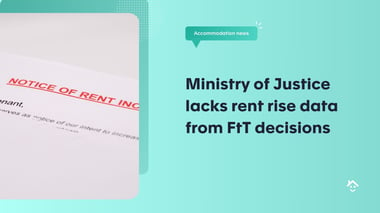Rising number of homeless students in the UK
With a growing number of homeless students in the UK, one think tank says universities must do more to help - particularly students from poor backgrounds.
In a report, the Higher Education Policy Institute (HEPI) says that there isn’t enough information on former and current students, though there is evidence of hidden homelessness with reports that growing numbers of students are ‘sofa surfing’.
Now, the organisation says that universities must do more in preventing and tracking student homelessness because the numbers are expected to rise with increasing rents.
And though students are less likely to be homeless than those in the general population, there’s a growing worry that those from poorer backgrounds could be at a greater risk of being made homeless.
Students say they had experienced homelessness
One survey from the National Union of Students in Scotland found that 12% of students there say they had experienced homelessness since beginning their studies – and that rises to one in three who have been in care or are estranged from their parents.
Also, there’s a growing issue of international students with children struggling to find accommodation and increasing their risk of homelessness.
Hepi says that universities should research homelessness among the 5.3% of students who drop out and recent graduates.
Universities must also consider whether they need to play a wider role to support the ending of all homelessness which tends to be higher in university cities and towns.
Students at the risk of being made homeless
And those students who say they are at risk of being made homeless, or are homeless, should be able to receive targeted support from the University – and this should include access to accommodation or short-term financial assistance.
Greg Hurst, the report’s author, said: “Widening higher education access means broadening the university student body composition and admitting more students whose past circumstances and experiences mean they face a higher risk of homelessness.
“With inflation surging beyond 9%, it’s likely that from autumn most students will struggle to pay higher energy and food costs, along with their rent.”
‘Universities should ask themselves if they do enough’
He added: “Many universities should ask themselves if they do enough to prevent homelessness among their recent and current students.”
One national newspaper also interviewed Patrick Mulrenan, an associate professor at London Metropolitan University who specialises in inclusion and housing.
He said that his research reveals that student homelessness is a hidden problem in London with students having to stay with relatives and friends and sleep on floors.
They are also having to live in temporary council accommodation or stay in hostels.
He says that most of that homelessness is being driven by the ‘precariousness of no-fault evictions’.
Interviewed students who are homeless
Mr Mulrenan also says that he has interviewed students who are homeless and living in temporary accommodation who say that their situation affects them personally – and their children.
Universities UK said that the sector has been stepping up its efforts to target money as well as mental health support to those who need it.
The statement continues: “With the value of maintenance loans falling to their lowest level in seven years, this won’t be enough for many.
“The government must be alive to concerns and be ready to offer extra support to struggling students.”
The managing director of Accommodation for Students, Simon Thompson, said: “The report from Hepi is a cause for concern for those landlords who offer quality accommodation and try to help their student tenants as much as they can.
“There will be students who struggle to find somewhere to live or will struggle to pay rent, and it’s likely with the cost of living crisis leading to higher prices, including rent, means that this situation could get a lot worse before it improves.”
Rogue landlords are dodging the blacklist
Meanwhile, it has been revealed that rogue landlords are dodging the government’s blacklist register with just 56 being named and shamed in four years for running slum rental properties.
The findings from the Metro newspaper reveal that just 23 of the 333 local authorities in England have submitted entries to the register of landlords and agents who have been found to have wrongly treated tenants.
To date, just 99 offences have been recorded, that’s an average of 25 per year.
The research reveals that the worst offender has four convictions and banning orders.
Highest number of registered criminal landlords
Among the local authorities that do register details, the London Borough of Camden has the highest number of registered criminal landlords with five. There are four from Liverpool city council, and three from Salford city council and Telford and Wrekin council in Shropshire.
The news comes as the government has revealed its plans for creating a property portal as part of its rent reforms for the private rented sector.
They say they will publish more details about their plans for the upcoming White Paper to deal with rogue landlords and property agents.
The chief executive of the homelessness charity Shelter, Polly Neate, said that the next Prime Minister must make the rent reforms a reality as quickly as they can to deal with unfair evictions and to help empower tenants to challenge poor conditions and bad behaviour from landlords.




